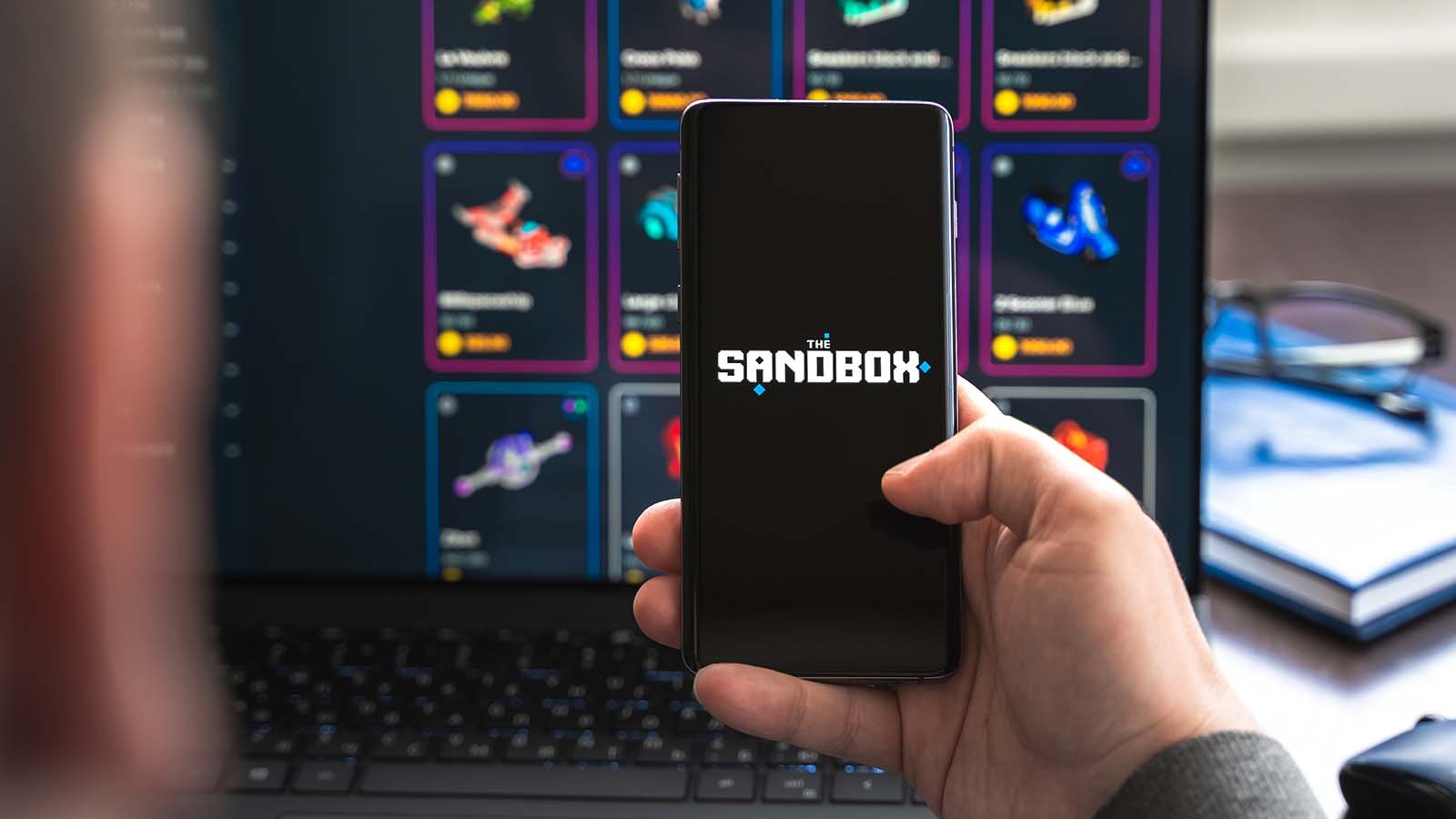
On Dec. 7, Rolling Stone magazine reported that someone had just paid $450,000 to buy virtual land in a metaverse crypto called The Sandbox (CCC:SAND-USD). The plot was close to a virtual land plot owned by Snoop Dogg. Nevertheless, this has not helped SAND crypto keep its price together. Investors seem to realize that the metaverse bump for SAND crypto might be over.
Source: Ira Lichi / Shutterstock.com
For example, since the end of the year, SAND crypto has fallen from $5.7742 per SAND token to $3.47, as of Jan. 28. That is a decline of 39.9%, similar to other cryptos in its market cap size category ($3.2 billion market value).
For example, VeChain (CCC:VET-USD) has a $3.42 billion market capitalization according to Coinmarketcap.com. It has dropped from 8.653 cents at the end of 2021 to 5.318 cents as of Jan. 28. That represents a similar drop of 38.5% for VET, compared to the 39.9% drop for SAND.
Therefore, being part of the metaverse craze earlier this fall, especially when Meta Platforms (NASDAQ:FB) changed its name from Facebook, did not help SAND crypto.
Where Things Stand at the Sandbox
This does not mean that investors are ignoring the metaverse arena and metaverse platforms like The Sandbox. In fact, on Jan. 27, The Sandbox game revealed a new $50 million fund to encourage startup companies to develop apps, NFTs (non-fungible tokens), and other unique assets for its popular game.
The Sandbox announced it was partnering with a global venture company called Brinc, based in Hong Kong. Its goal is to provide a $50 million acceleration fund for developing metaverse start-ups.
For example, Sandbox will fund 30 to 40 startups per year over the next three years. They will build their crypto platforms, games and assets on SAND’s ecosystem. The goal will be to provide 100 different companies $250K in SAND crypto tokens. Top performers will receive an additional $150K in SAND crypto tokens.
This is exactly the kind of subsidy that developers now both want and even expect in order to focus on a smaller crypto like The Sandbox. As a result, it will also help keep up interest in the popular game as well metaverse cryptos at large.
This kind of promotional effort by The Sandbox, along with partnerships like the one with Snoop Dogg, who bought his own virtual land in the game, will help drive up SAND crypto.
Where This Leaves Investors in SAND Crypto
Despite these efforts, as I explained earlier, SAND crypto has not been able to avoid a huge tumble in the past two months. For example, at its peak on Nov. 20, SAND crypto spiked up to over $8.40 per token.
But since then the crypto tumbled to $5.7742 by the end of the year. That represents a decline of 31.25% by the end of 2021. And since then, it has tumbled an additional 39.9%, as I pointed out above.
In other words, being part of the metaverse craze has not necessarily helped The Sandbox crypto game, despite its popularity with users. This is just as volatile a crypto as another small-cap crypto (if you consider multi-billion cryptos small-cap assets).
But don’t tell this to the faithful followers of The Sandbox. They have been playing with the virtual land and asset game since 2019. In fact, some compare it to the popular Microsoft (NASDAQ:MSFT) game Minecraft, according to a recent article in Decrypt magazine.
According to the article, both are:
“A virtual playground full of blocks to play with, akin to digital LEGO bricks. The difference comes in the form of virtual asset ownership, as users can purchase plots of land on the shared online map and build their own game experiences on them.”
Nevertheless, be careful with SAND crypto. It might be at a low now, or it might have further to fall. So far it is not easy to tell, as there are no underlying statistics such as numbers of users, asset values or total value locked (TVL) with which to value the game and its SAND crypto token.
On the date of publication, Mark R. Hake did not hold (either directly or indirectly) any positions in the securities mentioned in this article. The opinions expressed in this article are those of the writer, subject to the InvestorPlace.com Publishing Guidelines.
Mark Hake writes about personal finance on mrhake.medium.com and runs the Total Yield Value Guide which you can review here.
This news is republished from another source. You can check the original article here



